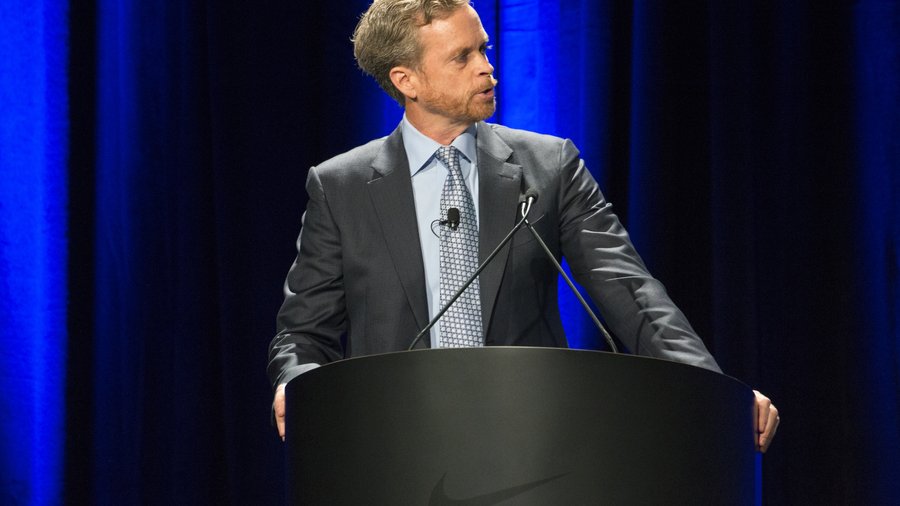Nike CEO and Chairman Mark Parker earned nearly $14 million in fiscal 2019 compensation, according to a proxy statement filed Tuesday with the Securities and Exchange Commission, a 48 percent increase from his 2018 pay.
Parker's fiscal 2019 compensation included nearly $1.7 million in salary, $5 million in stock awards, more than $3 million in stock options and more than $4 million in non-equity incentive compensation.
Parker's compensation is now 550 times higher than the pay of the median Nike worker, according to a metric the company first had to disclose last year when Parker's pay was 379 times higher than the median Nike worker.
Retailers tend to have high CEO pay ratios because of the high number of hourly employees in stores. Nike competitor Under Armour, for example, has a CEO pay ratio of 605.
Nike's median employee is a retail employee who earns $25,386 a year, according to the company.
In fiscal 2019, Parker also exercised stock options granted to him in previous years that netted him $47 million. He vested in an additional $4.7 million in stock awards.
Like most large companies, Nike pays its CEO largely based on company performance.
Nike sales increased 7 percent to a record $39.1 billion in the fiscal year ended May 31. The company's most recent earnings call showed the company's core strategy, which it describes as the Consumer Direct Offense, is starting to blossom after being unveiled at a 2017 investor day. The strategy revolves around more quickly responding to consumer demand.
Parker's pay increase comes amid continued questions about how Nike treats its workforce after a string of explosive news reports last year describe what some describe as a "boys' club" culture at the sportswear giant. Last week, Nike settled a racial discrimination lawsuit filed against the company.
Parker has said he is "all-in" on fixing the problem.
In its proxy statement, Nike outlines the criteria used to set Parker's compensation, including a mix of financial targets, such as revenue growth and earnings per share.
"If we exceed our targets, we will pay more; if we fall short, we will pay less or nothing at all," the company wrote.
